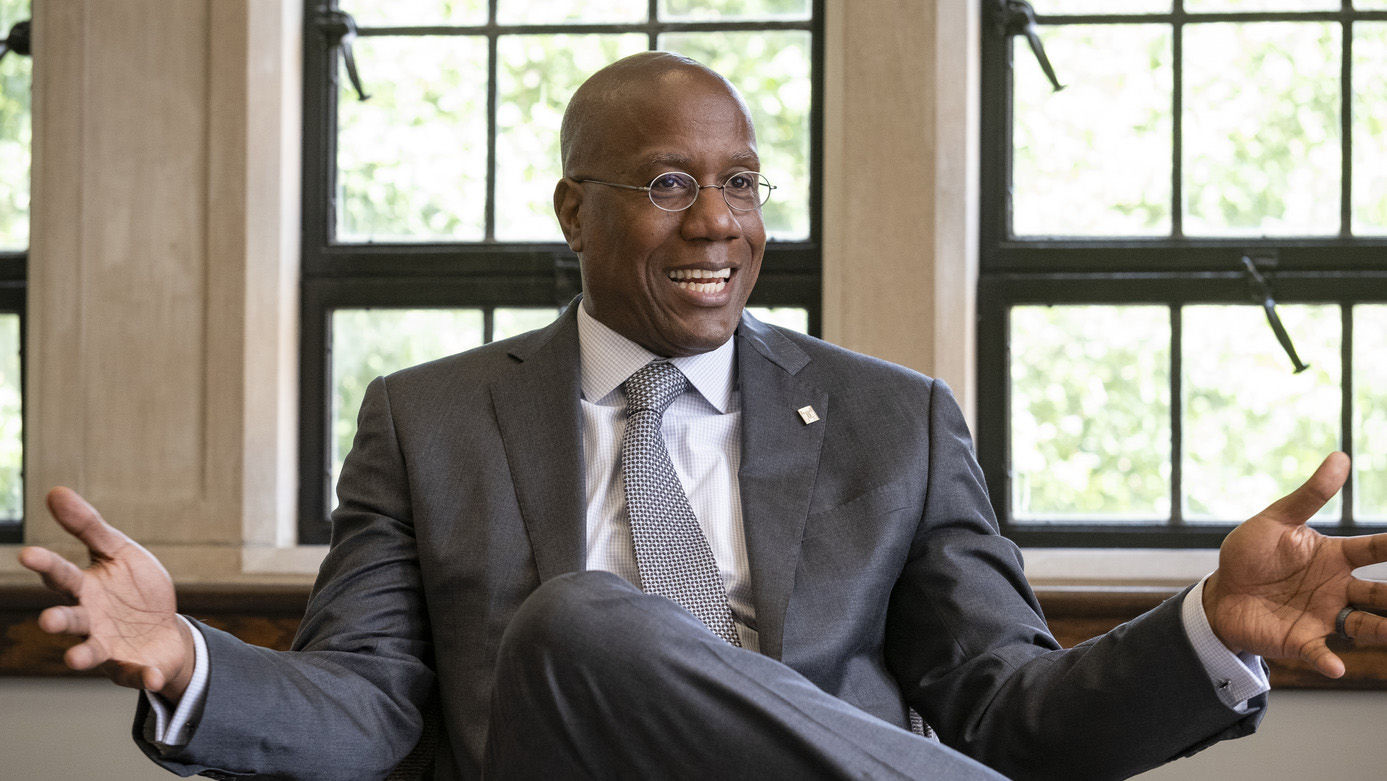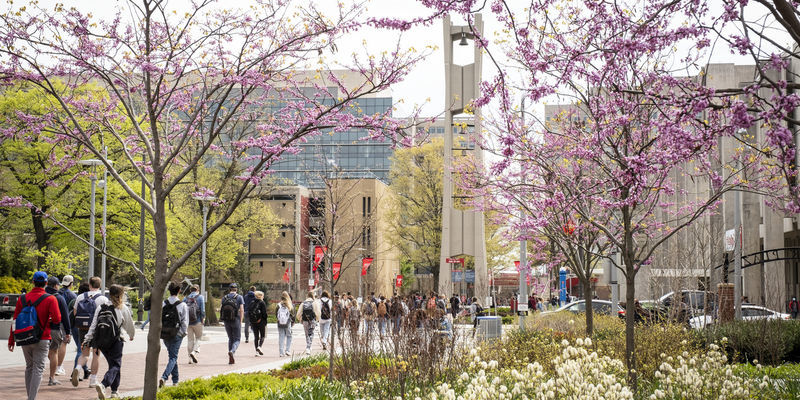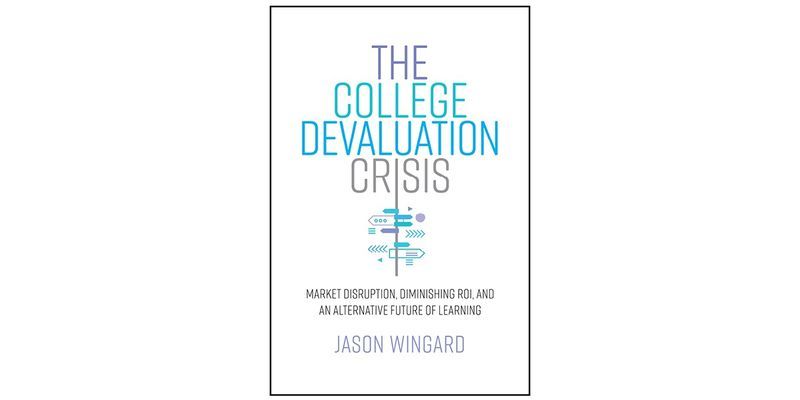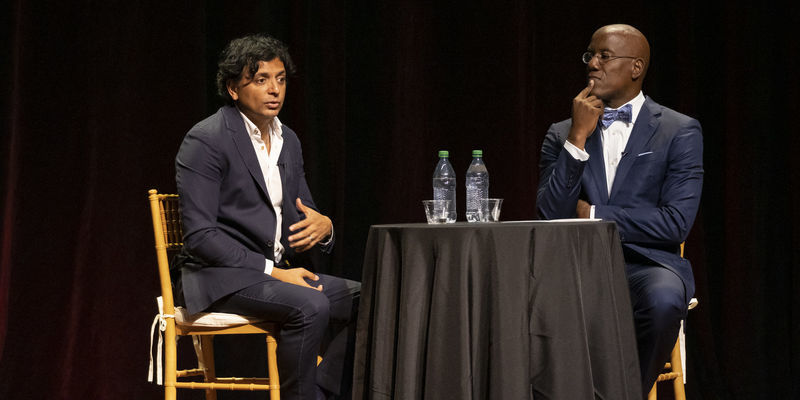President Wingard presented the opening address at Chronicle of Higher Education Festival
In his featured talk to approximately 5,000, President Wingard stressed how colleges must adapt to a changing environment.

As the keynote speaker of this year’s Chronicle Festival, a two-day summit organized by The Chronicle of Higher Education, Temple University President Jason Wingard addressed the significant concerns facing the future of higher education. The event, which drew more than 5,000 registrants, also featured New York Times bestselling author Malcolm Gladwell.
The festival posed the question: How can colleges and universities better communicate their value and rebuild trust in the American public? Wingard has the answer: Universities must pivot to meet employers’ needs and foster constant curricular innovation.
Wingard shared lessons from his recently published book, The College Devaluation Crisis: Market Disruption, Diminishing ROI, and an Alternative Future of Learning, in his conversation with Scott Carlson, a senior writer for The Chronicle of Higher Education.
Staggering statistics in Wingard’s book show the declining trend in higher education accelerated by COVID-19, a drastic shift from its boom in the 1950s through the end of the 20th century. World War II, the Civil Rights Movement, and the Cold War spurred a knowledge economy. As part of that economy, higher education gave the U.S. a global competitive advantage and solved social issues at home, including preventing a post-war recession and mass unemployment. After the Great Recession in 2008, more families and employers started questioning the value of an education. Employers needed workers with cutting-edge skills but did not have the funds to bolster training and development. Graduates had debt and saw their skills gap affecting their ability to get and stay employed across various sectors.
Wingard calls the current state of higher education a “burning platform.” He is relentless in sounding the alarm, which he describes as step one of disrupting the industry. Step two is convincing faculty and the schools to move the oil tanker and acknowledge that something is wrong; that change is necessary. The last step to retaining the value of higher education is executing improvements.
Those improvements, Wingard says, depend on an adaptive model of college curricula. “We must tweak and adapt our curriculum at least every year,” he explained in his talk with Carlson.
“If we are not valuable, enrollment is down and budgets are down,” Wingard said. “Higher education is a business. All of us in higher education have profits and losses. The business that we are in is satisfying the workplace of the future. If we are not training people for that, we are not satisfying our commitment to the economy.”
Some listeners expressed concerns. “I’m hearing a lot about ROI [return on investment] and what employers are looking for,” audience member Tracy Berger said. “What about higher education as a public good instead of a market good?”
“My answer is that we need to maintain our solid foundations in liberal arts and research,” Wingard responded. “But we also need to have our pulse on the skills people need in the workforce.”
For many, Wingard’s argument is refreshing. Krista Campbell, an audience member, commented that colleges need to be honest in communicating their value. “It is clear to me that education is valuable,” Campbell said. “But maybe higher education is not for everyone, and we should make those distinctions clear.”
The solution for colleges is implementing more skill-building, according to Wingard. He suggests institutions build rubrics for the skills and competencies that employers seek. If an institution does not currently offer those skills, he urges them to be willing to meet and partner with employers in all sectors.
Temple has plans to fill this competency gap among its graduates. The university will launch an Institute for the Future of Work and hire its first director this academic year. Wingard and Temple Provost Gregory Mandel have identified it as a key initiative within the university’s strategic priorities. The forthcoming institute will bring together expertise on education, experiential learning, research, and industry partnerships aimed at preparing our students for the future of the workplace.
The archived version of Wingard's featured talk is available here.
- Emily Sabalbaro


